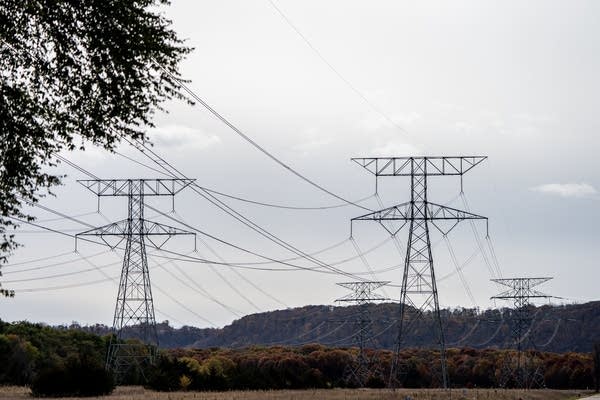Electric and gas rates set to rise across Minnesota

Power lines carry energy from the Prairie Island Nuclear Generating Plant near Red Wing, Minn. The state's largest utilities all have rate increases taking effect on Jan. 1.
Evan Frost | MPR News 2019
Go Deeper.
Create an account or log in to save stories.
Like this?
Thanks for liking this story! We have added it to a list of your favorite stories.


